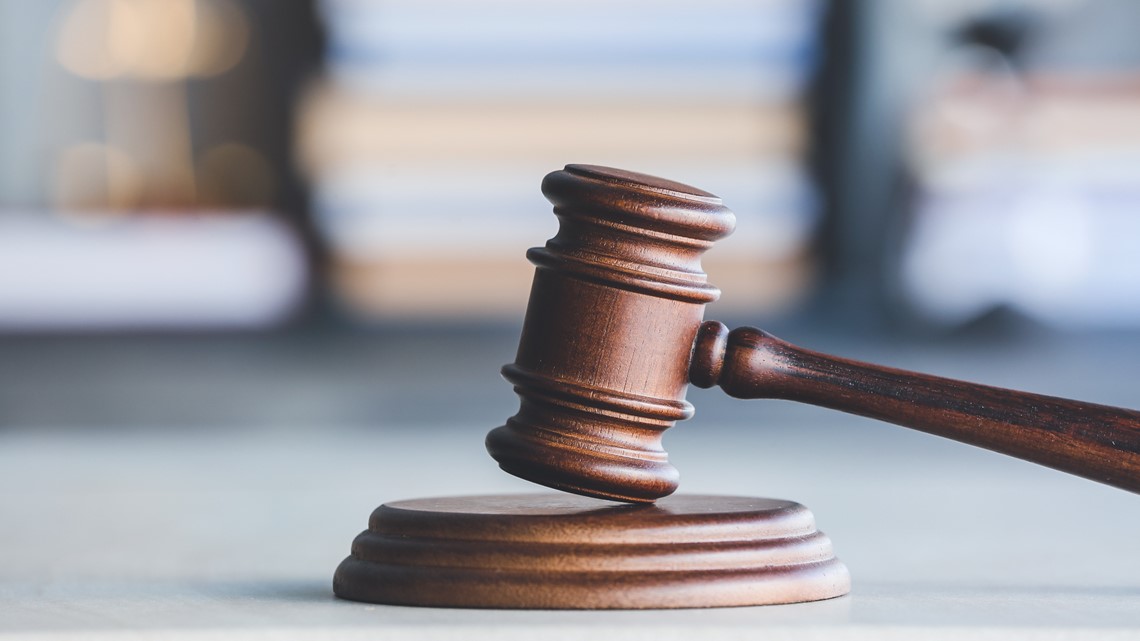Victor Sean Dennison, of California, was scheduled to begin a trial Monday before U.S. District Judge Trevor McFadden.
WASHINGTON — A federal judge issued a bench warrant Monday for the arrest of a Jan. 6 defendant who failed to appear for his scheduled trial date.
Victor Sean Dennison, of California, was charged in January with four misdemeanor counts for allegedly entering the U.S. Capitol after noticing doors that had been breached. Dennison, who was wearing an “All Aboard the Trump Train” hat, reportedly told investigators he’d seen a man holding a hammer near a smashed window before he entered.
Dennison elected to represent himself and was assigned a federal public defender as standby counsel. He was scheduled to begin trial before U.S. District Judge Trevor McFadden on Monday but, according to court records, failed to appear. McFadden issued a bench warrant for his arrest the same day.


On Wednesday, McFadden filed a letter from Dennison to the public docket that appeared to echo common phrases from the sovereign citizen movement – a loosely organized right-wing ideology that believes “virtually all existing government in the United States is illegitimate,” according to the Anti-Defamation League.
In the letter, which was sent to standby counsel and Justice Department attorneys, Dennison refers to himself variously as the “beneficiary” of his trust, an “American Freeman,” a “living breathing man” and as “Victor Sean of Dennison, trust protector.” Sovereign citizens often claim they are not citizens of the United States but rather “sovereign” unto themselves and, therefore, “freed from the jurisdiction of the ‘de facto’ government and courts,” according to the ADL. Sovereign citizens also frequently insist there is a distinction between their “living person” and the corporate trust, sometimes referred to as a “dead entity,” they believe the government created when they were born to unwittingly force them into a contract. Dennison referenced those ideas repeatedly in his letter.
“You cannot represent a living man,” Dennison wrote to his standby counsel. “I’m a living man. An attorney can only represent the dead. When you use the words ‘you’ and ‘your’ are you referring to a dead entity? Are you trying to summon the dead? Or do you meant the living breathing man?”
“Let it be known, the Provost Marshal has been noticed,” Dennison also warned cryptically – an apparent reference to a belief held by some sovereign citizens, according to a 2015 FBI briefing, that military authorities will intervene in the event of their arrest or prosecution.
Dennison isn’t the first Capitol riot defendant to seemingly espouse sovereign citizen beliefs. Pauline Bauer, a Pennsylvania pizza shop owner who McFadden sentenced to more than two years in prison last month, asserted early in her case that she was “not a person.” James Beeks, a Broadway actor accused of entering the Capitol with other members of the Oath Keepers on Jan. 6, denied during a court hearing that he was a sovereign citizen and insisted he was instead an “American standing under public law… here by special divine appearance.”
As of Wednesday afternoon, there was no record in the public docket of the arrest warrant against Dennison being served. The U.S. Army Provost Marshal General had yet to make an appearance in the case.
.png)









 English (US) ·
English (US) ·